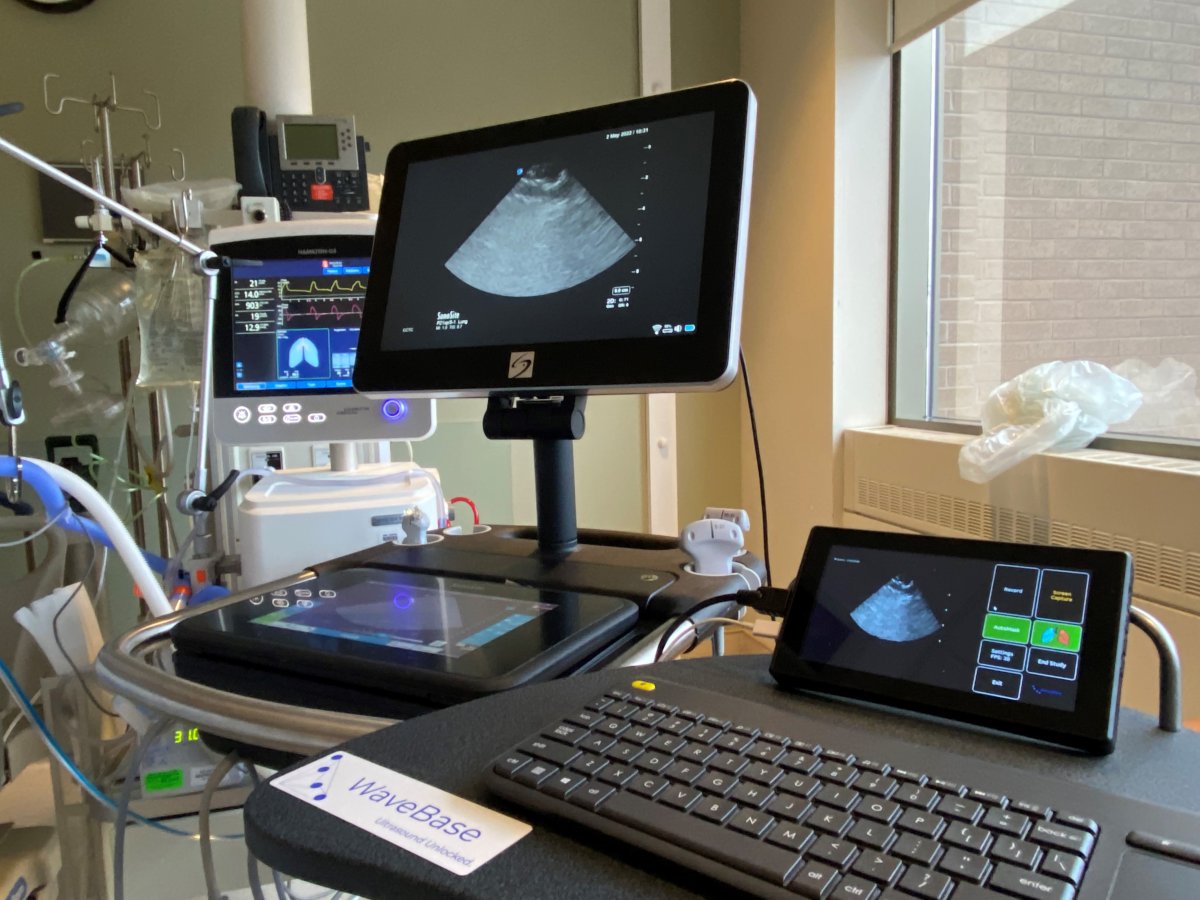Researchers at Lawson Health Research Institute in London, Ont., are hoping a new study will shed light on the feasibility of using artificial intelligence to diagnose lung abnormalities in real-time at a critically ill patient’s bedside.

The study will involve the participation of roughly 100 critical care patients from London Health Sciences Centre, and will see an AI model used to read live images from a portable ultrasound machine to detect the presence of abnormal lung signals.
Speaking with Global News on Wednesday, Dr. Chintan Dave, critical care medicine fellow at LHSC and Western University, said countless studies have examined the use of AI in reading static X-ray and ultrasound clips, finding it to perform well in detecting abnormal lung tissue.
“To our knowledge, there have been very limited studies actually taking this AI model and seeing if it works at the bedside.”
Dave suggested being able to “apply this model right as we assess the patient when they come into the ICU or the emergency department” could then possibly “help us make quicker and better decisions for patient care.”
“We’re basically testing to see whether our AI model, that does really well on thousands of lung ultrasound clips and performs at the same level that ultrasound trained experts (can achieve) … whether that is translatable at the bedside.”
According to Lawson officials, the study will utilize technology from Waterloo-based tech company Wavebase, which will search the live ultrasound images for patterns and determine whether the images show normal or abnormal lung tissue.

The pairing of ultrasound imagery and real-time AI diagnostics has been hailed as a research milestone, and Dave says he hopes the study’s findings will allow more health-care workers, not just trained ultrasound operators, to use the technology in practice, speeding up treatment.
“Literally, anyone (could) take an ultrasound probe,” – like a bedside nurse or respiratory therapist – “put it on the patient’s lungs and the AI model will then alert the user whether the lungs are normal or abnormal,” he said.
“If the lungs are normal, great. We don’t need to worry about it, we can move on and do other important things. Whereas if the lungs are abnormal, then whoever is using at bedside, let’s say the nurse, can then alert the physician and then that could start a whole process only if needed.”
A release from Lawson says the first phase of the study will see the AI’s interpretations of lung ultrasound scans compared to that of a trained expert.
“Once this accuracy is assured, the team will proceed with a second phase to assess the device with non-expert users and customized settings for more in-depth diagnostics,” the release says.
- ‘She gets to be 10’: Ontario child’s heart donated to girl the same age
- Bird flu risk to humans an ‘enormous concern,’ WHO says. Here’s what to know
- Shoppers faces proposed class action over claims company is ‘abusive’ to pharmacists
- ‘Bacterial vampirism’: Deadly pathogens attracted to human blood, study finds








Comments